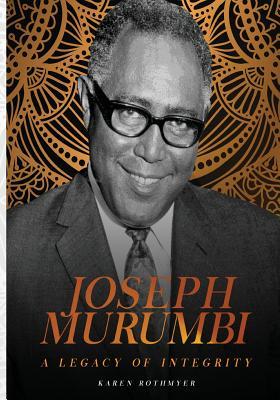In 1966, after serving first as Kenya's Foreign Minister and then as Vice-President, Joseph Murumbi resigned from Government. Having concluded that the country had made a wrong turn away from a concern for the poor and the ideals he believed in, Morumbi told an old friend that he could no longer 'be part of corruption in this country'. Tribalism, too, which was to take Kenya to the brink of disaster years later, had already become firmly entrenched, and he wanted no part of it.
Today, Murumbi stands as a symbol of what Kenya could have become, and still could be. As the son of a Goan father and a Maasai mother, he disdained prejudice of any kind. As someone plucked from relative obscurity by Jomo Kenyatta thanks to his hard work and talents as an organiser, he was dismissive of those who depended on family or ethnic connections. And as a strong advocate of embracing and preserving African culture, he was a champion of African artists and their works.
This book, which combines interviews done with Murumbi in the 1970s with historical information and recollections of the people who knew him.
